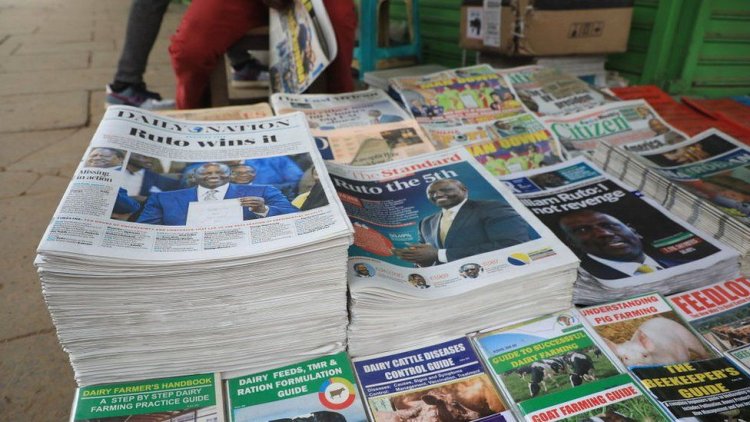KEBS Dismisses Warning To Kenyans Against Buying Newspapers
The regulator deemed the viral post suggesting it banned the ink used by two media houses on their newspapers, as fake.

The Kenya Bureau of Standards (KEBS) has urged Kenyans to ignore reports that it was investigating media houses accused of using commercial petroleum-based ink to print their daily newspapers.
Taking to its X account, the regulator deemed the viral post suggesting it banned the ink used by two media houses on their newspapers, as fake.
”Public notice on newspaper petroleum-based printing ink linked to cases of cancer is fake and has not originated from KEBS," stated KEBS.

An image of KEBS offices. /CAPITAL GROUP
The notice claimed that the government had instructed media houses to reduce the use of carbon black ink, which contains traces of polycyclic aromatic hydrocarbons (PAHs) linked to cancer and other health issues.
The media houses highlighted in the contested post included the Nation Media Group and Standard Group Limited. Nation Media Group prints and distributes various publications, including The Daily Nation, The East Arican, Taifa Leo, and Business Daily while newspapers under the Standard Group include The Standard and The Nairobian.
"We wish to inform the public that under an agency-mandated investigation, the following national media houses have failed to meet the minimum required threshold for the use of commercial petroleum-based printing ink in their national newspapers," claimed the post as mentioned above.
"These petroleum-based inks are known to be toxic and not to be safe due to high amounts of Volatile Organic Compounds (VOCs)," the now contested post further suggested.
The fake notice continued to state that the mentioned media houses were instructed to immediately put in place corrective actions in their printing presses to ensure that the ink used complied with the quality specifications in the standard.
It also claimed that KEBS put in place a 45-day window for the highlighted media houses to comply with the demands.
The fake notice also warned Kenyans against wrapping foodstuffs or even using newspaper pieces as alternative toilet tissue.
"Special attention is given to Mama Mbogas, butcheries and those who live in Informal Settlements. Studies have linked this Carbon Black Petroleum-based Ink to cancer and other skin disorders," it read, in part.
KEBS was forced to clarify after several Kenyans questioned the credibility of the post with some demanding to know why such information was not conveyed on time.
Newspapers have been among media channels that have struggled to adapt to the rise of digital media as more Kenyans gravitate towards social media platforms that include bloggers, digital native media houses and influencers as their source of news in real-time.


 admin
admin 




